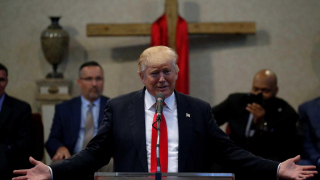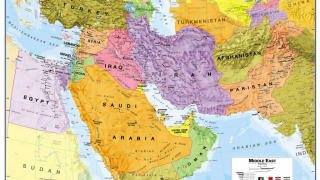Reviving Pak-U.S Bilateral Engagement
01.11.2019
Contemporary Pak-US relations are confined and usually focused on war on terrorism. Pakistan and the United States (US) set up discretionary relations on October 20, 1947. Pakistan remained under US security agreements, for example; Southeast Asia Treaty Organization (SEATO) and Central Treaty Organization (CENTO). Pakistan likewise assumed a critical job in US-China rapprochement in the mid-1970s. The different sides collaborated during the 1980s, when Soviet Union attacked Afghanistan in 1979 where Pakistan helped the US and global community. After 9/11 attacks on the U.S, Pakistan by and by held hands with the US in fighting the then-Global War on Terrorism (GWoT). Pakistan was likewise agreed a "significant non-NATO partner" status in acknowledgment of being an ally in the GWoT.
Disregarding all the security related cooperation, two states has never has smooth bilateral relationship. In general, the Pakistan-US relationship has not been founded on equality, rather has remained need based. There have been times when incredible desires transformed into extraordinary dissatisfactions and solid commitment was trailed by withdrawal. At present, this relationship experiences shared doubt. President Donald Trump's August 2017 discourse on "South Asia and Afghanistan" and his "New Year Tweet" have not spanned the distinctions. The primary wellspring of worry between the two nations is the Afghan problem. While both have an announced approach of supporting compromise endeavors in Afghanistan, there seems, by all accounts, to be contrasts on the methods to accomplish it. The suspension of Coalition Support Fund (CSF) to Pakistan and the US making the lead in the Financial Action Task Force (FATF) to put Pakistan on the “Black List” have additionally stressed two-sided ties. Developing US-India relations in complete negligence of Pakistan's authentic security interests add to reciprocal aggravations and complexities.
Pakistan is the 6th biggest nation on the planet by populataion nd the 40th biggest economy. The United States is Pakistan's biggest export destination. In spite of continuous security and macroeconomic concerns, Pakistan stays an alluring business sector for U.S. organizations because of great socioeconomics, English language aptitudes, low work expenses, and regular assets; in any case, there are genuine exchange hindrances that utmost the capacity to enhance Pak-US trade and non-security relations.
Coming to the point, Pakistan desires to revive the bilateral engagement with US beyond Security and Counter Terrorism domains. US policy of giving strategic primacy to India will de-stabilize the region. Engagement over larger spectrum including trade, investment, defense, education, science & technology, and people to people exchanges would make up for constructive relationship helping Pakistan to achieve its targets. There is huge potential to increase trade b/w the two countries to the tune of $ 50 billion as quoted by President Trump himself. Pakistan has huge potential for investment in energy sector whereby US current interests of investing in solar sector would mark initiation of broad based engagement. Pakistan is determined to take the issue of terrorism to the logical end however, providing greater role to India will hold serious security implications for the region and will impact Afghan peace process. India has been following parochial ideology of denying space to Pakistan by projecting terrorist incidents as cross border attacks. In the process, denying the factual reality of these incidents, being a direct result of state sponsored violence aimed against minorities. US silence on the issue of revocation of special status of Kashmir will be catastrophic for peace and stability of the region as US is the only power that can push India to lift curfew and take back decision of abrogation of articles 35-A and 370.
The current U.S. commitment with Pakistan might be centered on the war on fear based oppression, however it should not bound to it. The current U.S. commitment with Pakistan offers certain lessons for U.S. policymakers. These are identified with the dangers engaged with putting together arrangement with respect to standards without having a procedure, confining a nation that has the ability to damage, and country working in a nation undecided or impervious to the United States' grip. The United States must assist Pakistan with pursuing a way that meets its goals and financial needs and is strong enough to suit ethno linguistic, local and partisan differences. Just such a course can assist Pakistan and U.S with becoming steady and capable partnersin the comity of nations.














